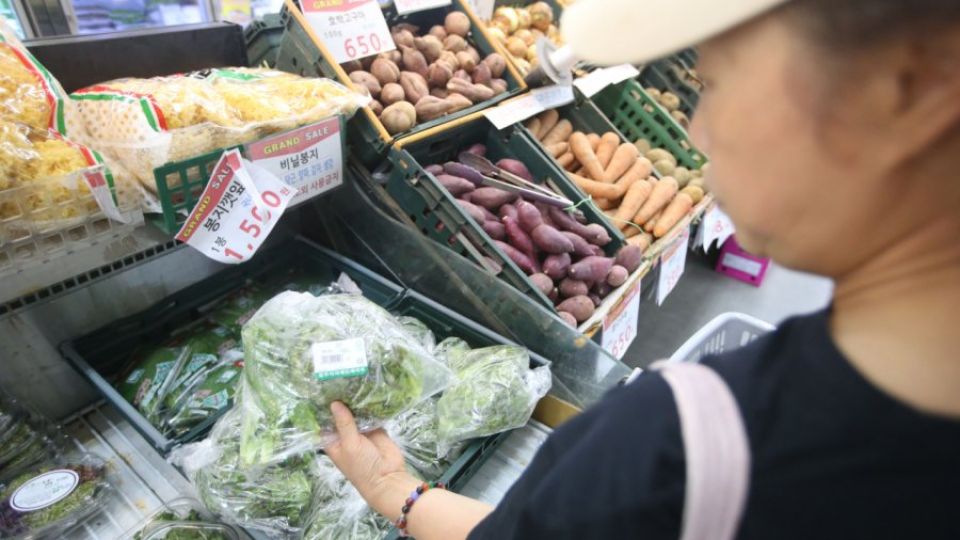August 3, 2023
SEOUL – BOK predicts inflation to rebound from August, coming in at 3 percent by year-end
Korea’s consumer prices showed slowed growth, rising by 2.3 percent in July on-year, mainly due to the decline in international oil prices and base effect from last year, data showed Wednesday.
According to Statistics Korea, consumer price growth, a key gauge of inflation, stood last month at 2.3 percent more than a year earlier. It is the lowest increase in 25 months since June 2021.
Inflation has been showing signs of losing steam here after passing its peak at 6.3 percent in July 2022.
Consumer price growth remained in the 5 percent range from August 2022 to January. It has been on a decline from 4.8 percent in February, 4.2 percent in March, 3.7 percent in April, 3.3 percent in May to 2.7 percent in June.
Core inflation, which excludes volatile food and energy prices, has been slower to wane compared to headline inflation. But the numbers show core inflation is slowing down too, climbing by 3.3 percent on-year in July, down from increases of 3.5 percent in June, 3.9 percent in May and 4 percent in April.
In detail, the price of fuel fell by 25.9 percent on-year in July, the sharpest decline since the agency started compiling related data in January 1985. The dip stems from the fall in international oil prices and base effect from last year.
Prices of diesel fell by 33.4 percent, gasoline by 22.8 percent and liquefied petroleum gas for vehicles by 17.9 percent in July when compared to the same month in 2022.
“Prices of petroleum products falling to record-low figures led the price growth in the 2 percent range,” Kim Bo-kyung, a senior official at Statistics Korea, said.
The growth of utility service prices, heavily impacted by oil prices, eased too. It climbed 21.1 percent over the period, lower than the previous month’s figure, tallied at 25.9 percent.
Prices of daily necessities — a basket of 144 items including food and clothing — advanced 1.8 percent on-year, the lowest in 29 months since February 2021.
But vegetable prices rose 9.1 percent on-year, 1.7 percentage points higher than June’s figure, due to the heavy rain last month.
Though figures show inflation cooled significantly in July, authorities project that the consumer prices growth would see a rebound from August.
“As inflation eased due to the base effect of (oil prices) until July, the slowdown may not continue from August when that effect wanes,” Kim said.
The Bank of Korea echoed the stance that prices could rise sharply from August.
“The inflation rate continued to decline in July due to the base effect (of oil prices) despite the heavy rain,” Kim Woong, deputy governor of the BOK, said at a meeting held at the central bank’s headquarters in Seoul on Wednesday, shortly after the figures were released.
Inflationary pressure on the economy continues with the recent rise in international oil prices following the production cut decision from OPEC+. The heavy rain from last month could lead to another spike in vegetable prices in August, he said.
The jump in public transportation costs due to the Seoul Metropolitan Government’s hike in bus fares from August and in subway fares from October will put pressure on inflation, too.
“Consumer price growth will rebound in August and fluctuate at around 3 percent by the end of this year,” Kim said.
“Though it shows signs of slowing down, core inflation growth is likely to stay above the (3.3 percent) projection made in May.”


